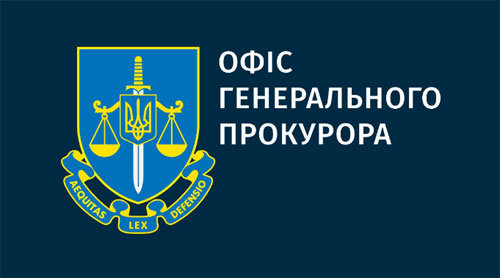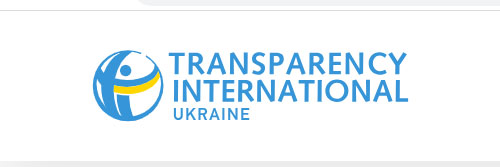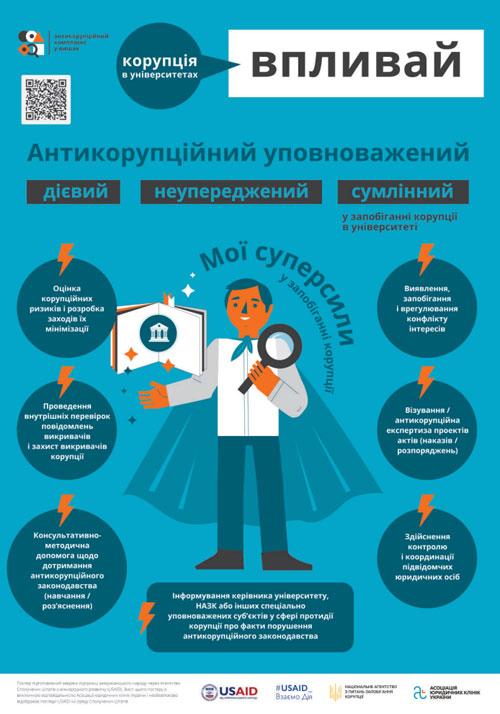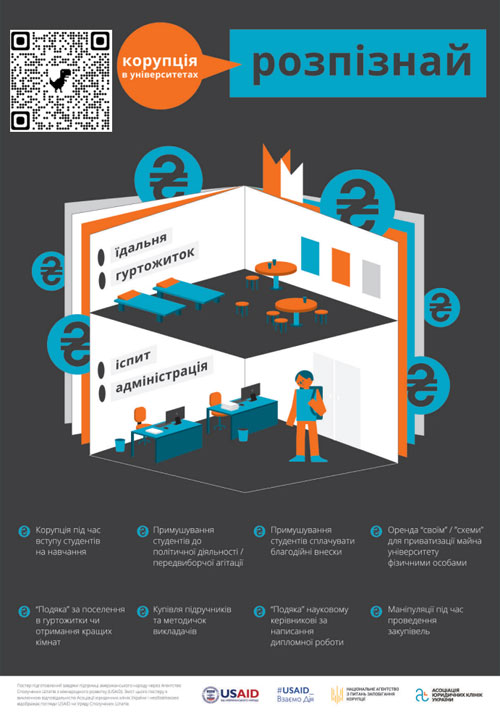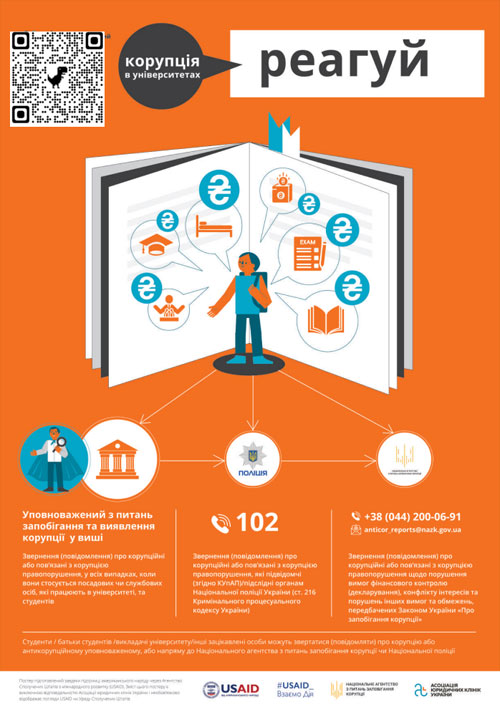Analyzing the main documents that regulate the implementation of anti-corruption measures in Ukraine, in particular the State Anti-Corruption Policy until 2025 and the Anti-Corruption Strategy of Ukraine, I focused on the fact that the fight against corruption in the field of education is not in the last place in them. The main issues that require an immediate response are abuses during the admissions campaign, during the defense of qualification papers, EIT and some others. This is not surprising, because education is not only the purposeful activity of professional specialists to provide young people with knowledge and help in acquiring certain skills and abilities in one or another field, but above all, it is the formation of a holistic worldview based on ideas, behavior norms and standards of all participants in the educational process.
In the 19th century Emile Durkheim, one of the founders of scientific sociology, emphasized that the main function of education is the transmission of the values of the dominant culture. Therefore, the internal anti-corruption measures introduced by the head of the higher educational establishment become the basis of forming the students’ worldview, their civic engagement, and a conscious negative attitude towards manifestations of dishonesty and corruption.
It is the institutes of higher education that have the right and duty to carry out educational activities among students. They are the systematic source of forming young people's zero tolerance for manifestations of corruption, not only according to the principles of the relevant academic discipline, but also according to the principle of "do as I do." Under such conditions, the role and steps of the head of the higher educational establishment regarding the initiation and implementation of the university anti-corruption policy are the main part of the general state anti-corruption policy, and its future.
This understanding of the role of the university administration in teaching students to reject corruption in all its manifestations clearly correlates with the principles of the "Leader's Voice" concept, which is now widely introduced in the practice of implementing anti-corruption programs in various countries. It is worth telling more about it.
The concept of "Leader's Voice" or "Tone at the Top" was created in audit companies that were competing for the consumer of audit services in the American market. The basis of the competitive confrontation was market demand for the professionalism of audit company employees and the organization's senior leadership responsibility for the establishment and maintenance of an appropriate internal control structure and financial reporting procedures. During the search for a successful marketing strategy, the idea arose that it was implemented in the concept of the company leadership commitment to compliance with professional standards of internal control and ethics, because only the leader's vision and conveying the company's policy to each employee could be a guarantee of its success. According to this principle, the concept of "Leader's Voice", or "Tone at the Top" was established at the legislative level in the United States of America and spread throughout the world in various directions and industries.
The systematic fight against corruption in Ukraine began more than 20 years ago, but as of today, it is still going into gear. Preventive measures play a significant role in the fight against this disgusting phenomenon, including the promotion of the idea of zero tolerance for corruption among the population. Anti-corruption institutions have become operational, the principles of anti-corruption policy and strategy have been adopted, and the country's anti-corruption capital is being formed. The National Agency on Corruption Prevention (NACP) is actively involved in the formation of the state anti-corruption strategy and the introduction of the latest mechanisms of influence on society in order to prevent the spread of corruption. The latest analytical studies of the NACP are aimed at determining what exactly needs to be done for further development of the anti-corruption foundations of the Ukrainian society functioning. One of these studies was the analytical review "The role of leadership in combating corruption". Its authors consider the head of the organization as a person who organizes the institution operation, and define the head's role and authority regarding the leadership position in the implementation of anti-corruption policy and anti-corruption compliance (that is, the ability to comply with established anti-corruption requirements, restrictions and prohibitions). After all, as defined in the UN Convention against Corruption, the state would not be able to combat corruption on its own, until each institution played its role in this process and became a partner of the state on the way to change. Moreover, the research determines that the main idea of the concept is not just the leader's speeches or instructions, but, above all, their purposeful influence on subordinates. They should influence and encourage every employee to become a follower of the idea of preventing corruption by their own example. This is the basis for building employee confidence in the organization and effective implementation of anti-corruption policy in it.
It should be noted incidentally that the Law of Ukraine "On Prevention of Corruption" does not contain a clear indication of the leadership role in the implementation of anti-corruption measures, but the analysis of its norms proves that the decision on various issues of anti-corruption measures belongs primarily to the organization's senior leadership. The implementation of internal anti-corruption practices depends on the manager's effectiveness and interest in achieving the goal of overcoming corruption.
Since one of the principles of anti-corruption policy is the formation of public intolerance to corruption, the establishment of a culture of integrity and respect for the rule of law, such measures are intended to be achieved with the use of "soft power" - with the help of persuasion, education, and communication. This work must be carried out consistently and systematically - both at the state level and at the level of individual organizations - to be effective. And the Igor Sikorsky Kyiv Polytechnic Institute is no exception. That is, now its anti-corruption program must be updated, discussed at the staff meetings and approved.



